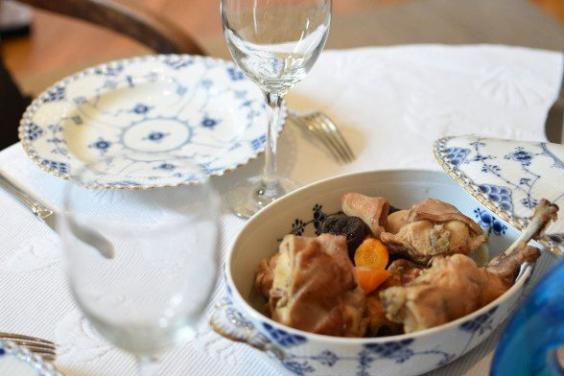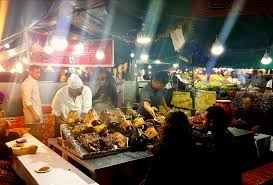
Independent: VizEat: The app that lets you eat dinner in a stranger’s home
Loulla-Mae Eleftheriou-Smith
Tuesday 11 April 2017 12:46 BST
A confession: I like to nose around people’s houses. I may not be a snooper, but I love seeing the types of books people own, the records they play or the pictures they put in pride of place to get a glimpse into a person’s life. Which is why, sitting in a total stranger’s Paris apartment, munching on canapés and sipping wine while ogling their living room, I feel an undeniable thrill of excitement.
Moments earlier I’d stepped through a large wooden door down a side street in the 14th arrondissement of Paris to be greeted by Marie, a chic-looking French woman with a shock of dark hair sporting a crisp white shirt and leather trousers. She ushered me and the rest of my party – all of whom she’d never met before – into her first floor abode before swiftly getting us settled with salmon tarama (a type of taramasalata), fresh bread and wine from Burgundy to feast upon. But I’m as interested in taking in our host’s home – complete with ornate iron balconies, blown up still-life photographs and an array of cook books – as I am in the food.
Marie is one of 22,000 currently indulging in the unconventional practice of inviting strangers into one’s home in order to feed them. She is a host signed up to VizEat, a start-up that lets travellers book interesting food experiences in 110 countries across the globe. It was an idea dreamed up nearly four years ago by co-founders Camille Rumani and Jean Michel Petit after they had been travelling in different countries and had the same stand-out experience: eating the kind of food you can’t get in a restaurant in a local family’s home. So they set up the Airbnb of eating, creating a platform where tourists can connect with local hosts and arrange to come to their homes for dinner, a cooking class or maybe just wine and cheese and a chat. Apple CEO Tim Cook has already tried it.




